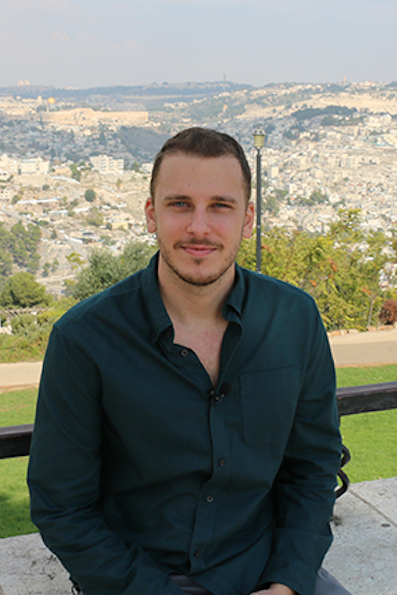You might assume that a Master’s degree in Theology and Religious Studies would be highly theoretical. But at VU Amsterdam, it’s just as much about putting theory into practice. This was ideal for John, who knew he wanted to find a practical use for his background in Middle Eastern history and politics in his home city of Jerusalem. “We would be given real-life scenarios to work on,” explains John. “For instance: you might be on the city council in Amsterdam and receive reports of local tension between the different religious communities – how do you handle them?”
The ideal internship
As part of his Master’s degree, John followed an internship at the Rossing Center for Education and Dialogue, a non-profit, interfaith organisation based in Jerusalem. It started in February 2020, but when Covid-19 hit he was unable to return to Amsterdam. So he finished his degree online while completing his internship. It turned out to be a blessing in disguise, as he was offered a job at the Rossing Center while he was still studying. “The internship was ideal in that it not only offered great experience but also a job at the end of it,” John continues. “What I also appreciated about the Master’s programme was the opportunity to build my network: I met dozens of people at various conferences, and those connections have been extremely useful already – even just a few months into my career.”
Bringing people together
That career spans everything from creating online communications, to bringing students from different religions together, to report- and grant-writing on the fundraising side, to developing materials and methodologies for other interreligious groups. John explains a couple of the projects he’s working on: “We’ve been bringing university students together in groups to discuss various scriptures – including the Hebrew Bible, New Testament and Quran. Together, we create dialogue about specific topics through reading the scriptures and interpreting them in today’s context.
“We’ve also worked with around 900 schoolchildren aged between 10 and 13, who attend Israeli and Palestinian schools. The school system is very segregated, so often it’s the first time Israeli kids have come into contact with Palestinian kids, and vice versa. We run a course of four meetings with them, so they can get to know each other and learn about each other’s traditions. The aim is to counteract racism and xenophobia at an early age.
Creating social change
Historically, religion of every kind has often been used to divide people and create conflict. But as a global population, society is still very religious and is something that connects people. “It’s important that the positive narrative gets heard as well,” says John. “Whether you’re Jewish, Muslim, Christian, Hindu, Buddhist, atheist, secular or hold any other belief, it’s crucial to listen to each other. And building that understanding of what connects rather than what divides is the first step towards meaningful change in society.”
